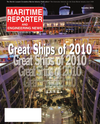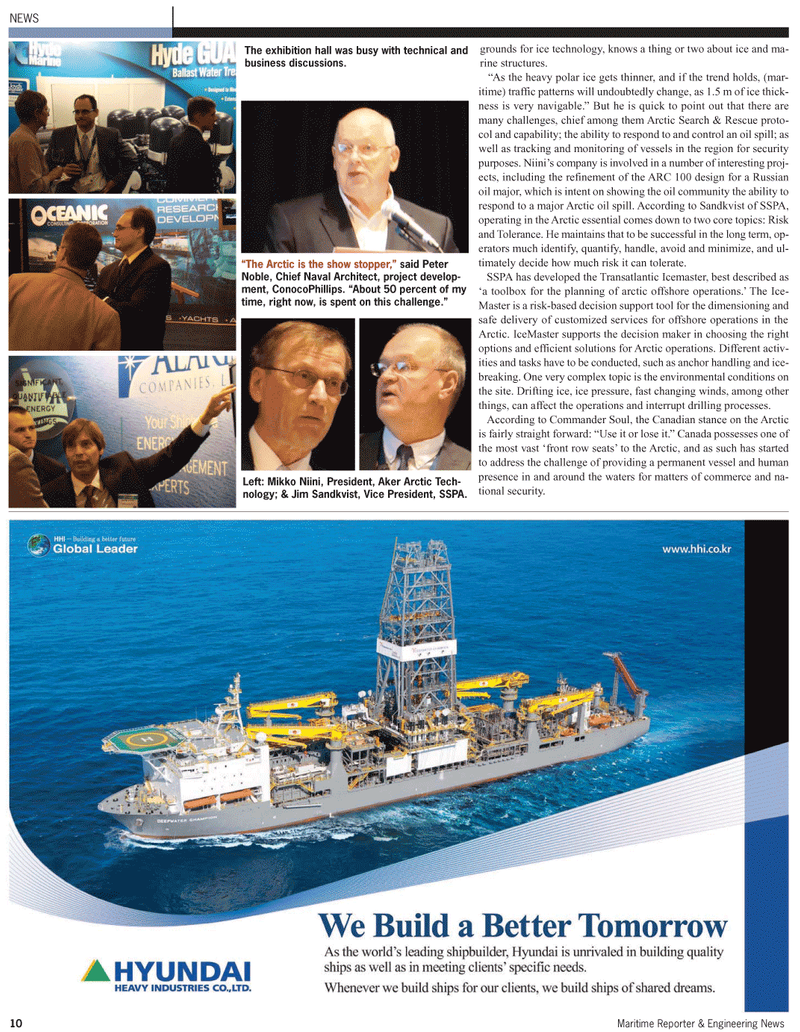
Page 10: of Maritime Reporter Magazine (December 2010)
Great Ships of 2010
Read this page in Pdf, Flash or Html5 edition of December 2010 Maritime Reporter Magazine
10 Maritime Reporter & Engineering News grounds for ice technology, knows a thing or two about ice and ma- rine structures. “As the heavy polar ice gets thinner, and if the trend holds, (mar- itime) traffic patterns will undoubtedly change, as 1.5 m of ice thick- ness is very navigable.” But he is quick to point out that there are many challenges, chief among them Arctic Search & Rescue proto- col and capability; the ability to respond to and control an oil spill; as well as tracking and monitoring of vessels in the region for security purposes. Niini’s company is involved in a number of interesting proj- ects, including the refinement of the ARC 100 design for a Russian oil major, which is intent on showing the oil community the ability to respond to a major Arctic oil spill. According to Sandkvist of SSPA, operating in the Arctic essential comes down to two core topics: Risk and Tolerance. He maintains that to be successful in the long term, op- erators much identify, quantify, handle, avoid and minimize, and ul- timately decide how much risk it can tolerate.
SSPA has developed the Transatlantic Icemaster, best described as ‘a toolbox for the planning of arctic offshore operations.’ The Ice-
Master is a risk-based decision support tool for the dimensioning and safe delivery of customized services for offshore operations in the
Arctic. IceMaster supports the decision maker in choosing the right options and efficient solutions for Arctic operations. Different activ- ities and tasks have to be conducted, such as anchor handling and ice- breaking. One very complex topic is the environmental conditions on the site. Drifting ice, ice pressure, fast changing winds, among other things, can affect the operations and interrupt drilling processes.
According to Commander Soul, the Canadian stance on the Arctic is fairly straight forward: “Use it or lose it.” Canada possesses one of the most vast ‘front row seats’ to the Arctic, and as such has started to address the challenge of providing a permanent vessel and human presence in and around the waters for matters of commerce and na- tional security.
NEWS
Left: Mikko Niini, President, Aker Arctic Tech- nology; & Jim Sandkvist, Vice President, SSPA.
The exhibition hall was busy with technical and business discussions. “The Arctic is the show stopper,” said Peter
Noble, Chief Naval Architect, project develop- ment, ConocoPhillips. “About 50 percent of my time, right now, is spent on this challenge.”

 9
9

 11
11
